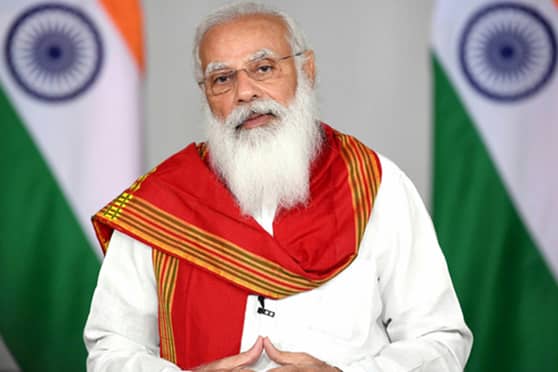PM Modi to inaugurate second campus of Kolkata’s Chittaranjan National Cancer Institute


Prime minister Narendra Modi will be virtually inaugurating the second campus of Chittaranjan National Cancer Institute (CNCI) in Kolkata on January 7 at 1pm.
The CNCI’s second campus has been built in line with the Prime Minister’s vision to expand and upgrade the health facilities in all parts of the country. The first campus of CNCI had been facing a heavy load of cancer patients and a need for expansion was being felt for some time. This need will be fulfilled through the second campus.
The second CNCI campus has been built on a budget of more than Rs 530 crore. The campus is a 460-bedded comprehensive cancer centre unit with cutting-edge infrastructure for cancer diagnosis, staging, treatment and care. It is equipped with modern facilities like Nuclear Medicine (PET), 3.0 Tesla MRI, 128 slice CT scanner, Radionuclide therapy unit, endoscopy suite, modern brachytherapy units and so on.
The campus will also work as an advanced cancer research facility and will provide comprehensive care to cancer patients, especially those from the Eastern and North-Eastern parts of the country.
The Chittaranjan National Cancer Institute has been named after Deshbandhu Chittaranjan Das and was established in 1950. It is a premiere centre for cancer treatment and research in the eastern region of India.
At present, CNCI has a research wing and a hospital wing. The research wing has seventeen departments and has qualified scientists who are focusing mainly towards understanding the molecular mechanisms in the development of cancer, identification of molecular markers, targeted therapy, prevention of cancer, epidemiology, anticancer drug development and immuno-regulation.
These departments conduct research in cancer relevant to the socio-economic need of the country as well as contribute to generating qualified manpower in the field of research work, awarding Ph.D degrees. The institute also runs a Diplomate in National Board (DNB) in the field of Pathology, Radiation Oncology as well as Surgical Oncology. All year round, students from various universities get training in the field of cancer research here.
The second campus will have facilities for Radiation Oncology, Medical Oncology, Surgical Oncology, head and neck Oncology, Gynae-Oncology, Paediatric Oncology, Radio diagnosis, Nuclear medicine, Preventive Oncology, Palliative Care and Rehabilitation.
In the upcoming campus, there is also the provision of providing comprehensive cancer treatment through various specialised departments like blood bank and transfusion medicine, diagnostic PET-C scan, MRI, bone marrow therapy and molecular pathology.